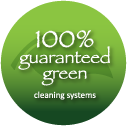Naturally Clean would like to share this article to you from, MindBodyGreen.com.
9 Tips To Use Less Plastic, Eat Better & Keep Toxins Out Of Your Body
Whether you like it or not, you’re probably one of the 90% of adults with endocrine-disrupting chemicals from plastic in your bloodstream. Endocrine disruptors are chemicals that have been linked to all sorts of nasty health problems, ranging from birth defects to cancers. Our plastic addiction also results in massive damage to the environment and economy.
Fortunately, on a personal level, dealing with plastic is easier than you might imagine. Even if you feel overwhelmed by life and think adding much more to your day is impossible, there are a number of nearly effortless changes you can make to better manage your relationship with plastic.
With that in mind, I’ve divided these changes into three simple categories that can help you use less plastic, eat better and keep toxins out of your body.
Use less plastic.
Just a few simple things can help you cut way back on the amount of plastic waste you generate.
1. Get some reusable grocery bags.
It really doesn’t get much easier than this. You’ll immediately reduce the amount of plastic you consume, and next time you need a tote for the beach, you’ll have an extra one.
2. Switch to reusable water bottles and coffee cups.
Not only will you reduce waste, but you’ll save yourself some money. Bottled water costs thousands of times more than tap water and is less strictly regulated. On the other hand, almost everyone offers a discount when you bring your own coffee cup. When you make the switch, consider stainless steel cups and bottles, as evidence suggests that the substitutes in “BPA-free” plastics, like BPS, might be just as bad or worse for you.
3. Swap plastic bags and disposable Tupperware for Mason jars and Pyrex.
Mason jars are really inexpensive and look nice full of bulk foods on the counter. You can store anything that would go in a plastic bag in them and use them over and over. Pyrex or stainless steel containers come in all shapes and sizes and are perfect for leftovers and packing lunches.
Eat better.
Here’s a radical — but obvious — idea: Junk food uses more plastic packaging, while real, healthy food uses less. So let cutting back on plastic serve as a guide for healthier eating. Reduce the amount of plastic packaging your food comes in and your diet will improve.
4. Hit the farmers market.
The farmers market offers the best chance of purchasing foods with minimal packaging (and minimal processing). In addition to selling fruits and vegetables, many farmers markets also sell bread, cheese, and meats. Bring your own bags or a box to toss your food in. And that’s all there is to it. Delicious, healthy, plastic-free food.
5. Shop the edges.
Ever heard the saying “Shop the edges”? Shop the edges refers to exactly this point — most of the middle of the grocery store is full of junk food. This also applies to plastics. Produce, bakery, deli, butcher: these areas all tend to have products with a lot less packaging and processing. Stick to the edges and watch the plastic and junk food disappear from your cart.
6. Skip the canned food.
In many cases the food in the can is healthy enough, but the can — not so much. Most cans are lined with plastic containing BPA. BPA is a chemical which mimics hormones and has been linked to everything from obesity to cancers. That’s right: it might not just be the food itself that can cause weight gain.
Keep toxins out of your body.
The chemicals in plastics can enter our bodies in all sorts of ways. Some are fairly obvious, like microwaving food or drink in plastic. Others are far less intuitive. Luckily, they are all easy to avoid once you know how.
7. Get a cloth shower curtain.
That plasticky smell that arises from your PVC shower curtain? It’s toxic. In fact, it’s more than just one toxic chemical — it’s many. Switching to a cloth shower curtain is easy and will keep you from breathing polluted air when you’re supposed to be getting clean.
8. Beware of dirty sex toys.
Not the fun dirty. Sex toys are classified as “novelties,” which means that in the eyes of the law they were never intended to be used. This creates a loophole whereby cheap and dirty plastics loaded with phthalates are used in their production. Phthalates are used to soften PVC plastic and have been tied to birth defects, diabetes, and breast cancer. Your best bet here is to opt for silicone or glass toys.
9. Say no to receipts.
Cash register receipts may be the best avenue for BPA to get into your body. The thermal paper most receipts are printed on contains up to 1,000 times more BPA than your average can of food. This BPA is loosely bound to the paper and can readily migrate through your skin and into your bloodstream. Who knew, right?




